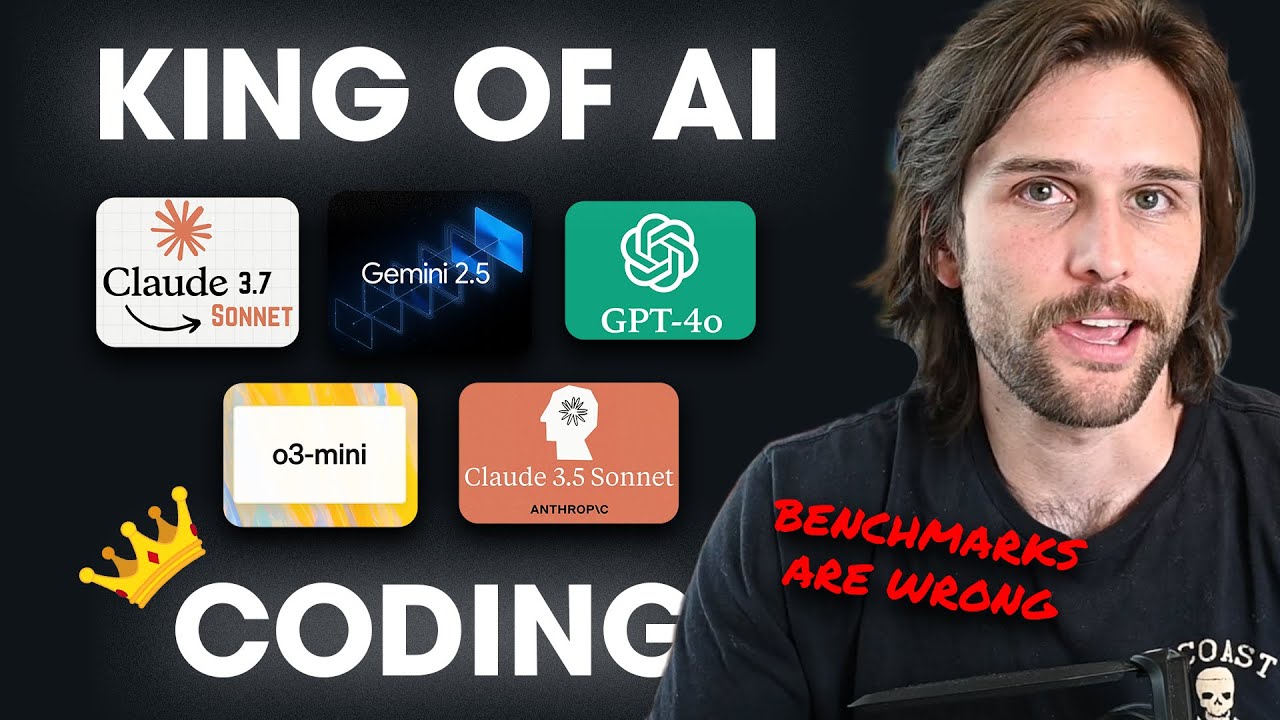In the video, the creator evaluates five AI coding models by testing their performance on coding tasks, including creating a simple game with P5.js, highlighting their strengths and weaknesses in accuracy, context awareness, and user experience. Ultimately, Gemini 2.5 Pro is identified as the best performer, while Claude 3.7 and GPT-4 fall short in effectiveness, emphasizing the importance of selecting the right model for specific coding needs.
In the video, the creator explores the capabilities of five popular AI coding models by integrating them into a development environment and testing their performance on real coding tasks. The focus is on how well these models can assist in coding, refactoring, and creating a simple game using P5.js. The creator emphasizes the importance of evaluating these models based on their strengths and weaknesses, particularly in terms of accuracy, context awareness, and user experience.
Starting with Claude 3.5 Sonnet, the creator praises its precision and ability to maintain context across multiple interactions, making it ideal for tasks requiring careful execution. Although it is slower, the creator prefers its accuracy over speed, as it reduces debugging time. However, it tends to play it safe and does not suggest improvements outside the immediate task, which can be a limitation. The creator notes that this model remains one of the best for precise coding tasks.
In contrast, Claude 3.7 Sonnet is described as overly ambitious, often attempting to refactor unrelated code, which can lead to confusion and errors. The creator finds its extended thinking mode unhelpful due to hallucinations and excessive complexity. The Gemini 2.5 Pro model is introduced as a combination of the best features of both Claude models, offering accuracy and a broad context window without overreaching into unrelated code. This model is recommended for larger codebases and complex tasks due to its ability to remember previous instructions and provide relevant suggestions.
The video also discusses the O3 Mini model, which is characterized by its lack of context awareness and tendency to require multiple manual iterations to achieve desired results. While it offers precision, the creator finds it less convenient than other models, likening it to a less efficient version of basic coding prompts. Finally, GPT-4 is critiqued for its inaccuracies and tendency to overwrite code unnecessarily, making it less suitable for coding tasks despite being a good conversational AI.
In the concluding segment, the creator tests the models by prompting them to create a game and evaluates their outputs. Gemini 2.5 Pro emerges as the best performer, producing a game that closely aligns with the prompt, while O3 Mini follows in second place for its unique mechanics. Claude 3.7 and GPT-4 are deemed less effective, with the creator expressing disappointment in their outputs. The video wraps up by highlighting the varying effectiveness of these models based on specific coding tasks and environments, encouraging viewers to consider their unique needs when choosing an AI coding assistant.
